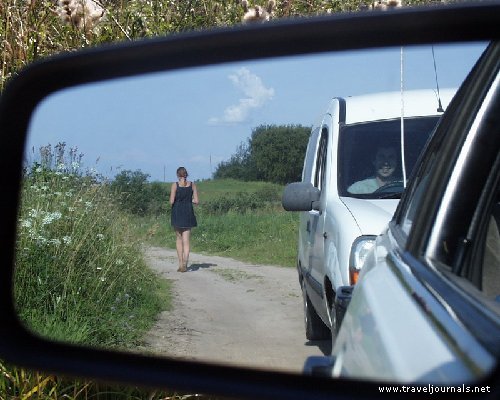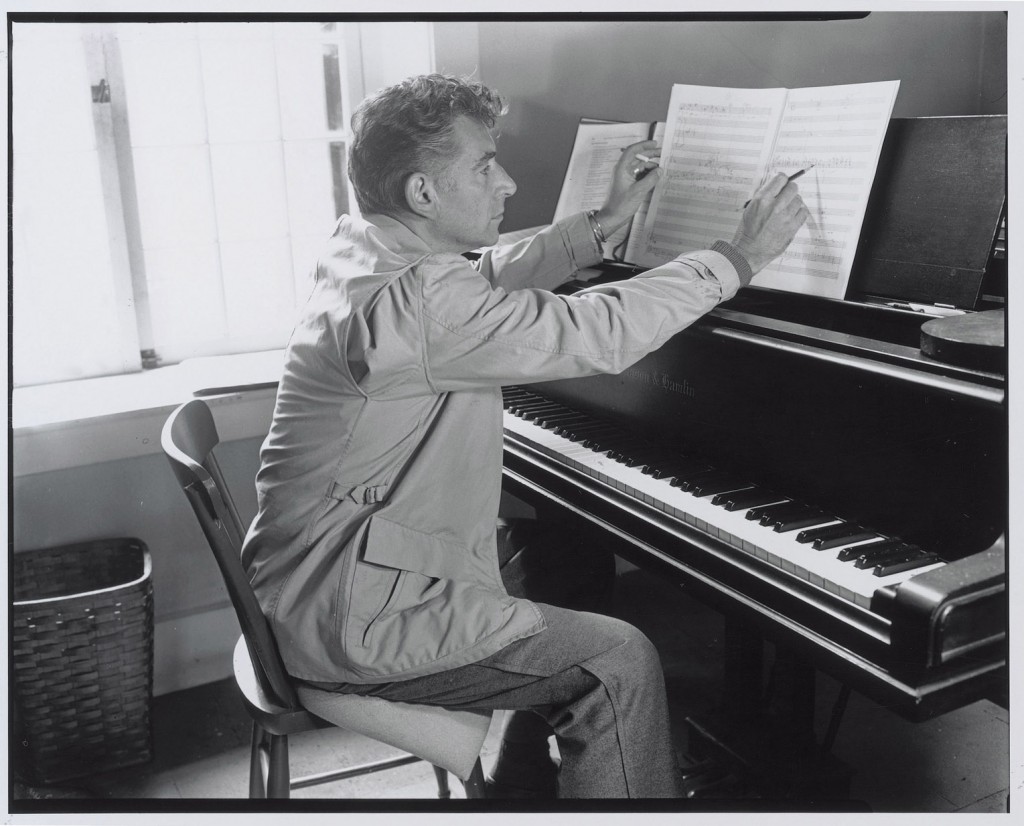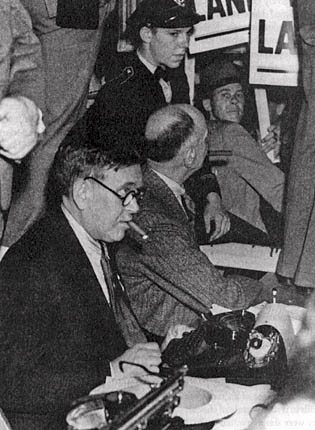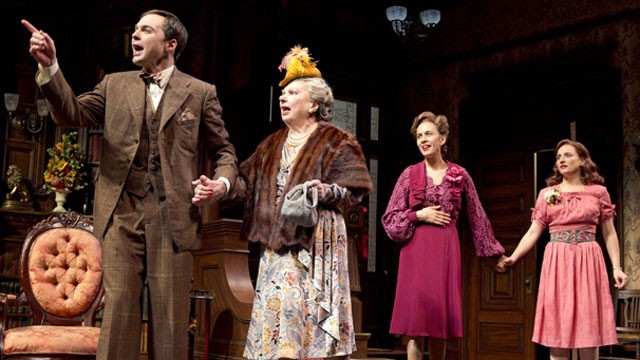 From 2004:
From 2004:
Instead of acting in boulevard comedies, playing jazz in nightclubs, dancing pas de deux with sylph-like women, or tossing off John Marin-like watercolors with a dazzling twist of the wrist, I write appreciatively of those who do. I can’t imagine anything more delightful than to write a profile of a little-known artist that makes him better known, and I know from experience that my abilities in this line of work are cherished by those who’ve been on the receiving end of them.
So no, I’m not frustrated–I’m fulfilled. I know exactly how lucky I am. I adore my work. And would I give it up in a heartbeat in order to be able to dance like Fred Astaire, or play piano like Count Basie? Please don’t embarrass me by asking….
Read the whole thing here.

 Leonard Bernstein knew what I was talking about. “I’m extremely humble about whatever gifts I may have, but I am not modest about the work I do,” he said in a 1959 interview. “I work extremely hard and all the time.” That’s how I feel about myself. Having met a few geniuses, I know quite well that I’m not one: I’m bright enough, and I’ve been blessed with a retentive memory, but that’s as far as it goes. What I do have in hyperabundance is what the Germans, who’ve coined an ugly-sounding word for just about everything, call Sitzfleisch, by which they mean the ability to sit at your desk for long stretches of time.
Leonard Bernstein knew what I was talking about. “I’m extremely humble about whatever gifts I may have, but I am not modest about the work I do,” he said in a 1959 interview. “I work extremely hard and all the time.” That’s how I feel about myself. Having met a few geniuses, I know quite well that I’m not one: I’m bright enough, and I’ve been blessed with a retentive memory, but that’s as far as it goes. What I do have in hyperabundance is what the Germans, who’ve coined an ugly-sounding word for just about everything, call Sitzfleisch, by which they mean the ability to sit at your desk for long stretches of time. It would be impossible to exaggerate the importance of this self-imposed isolation. I took a few months off in the summer of 2001 to finish
It would be impossible to exaggerate the importance of this self-imposed isolation. I took a few months off in the summer of 2001 to finish  I expect to blog from MacDowell at odd intervals, but not, I think, too often. I intend to do my very best to get the most I can out of this experience. While I have it on
I expect to blog from MacDowell at odd intervals, but not, I think, too often. I intend to do my very best to get the most I can out of this experience. While I have it on  Mary Chase’s “Harvey,” the story of a tippling bachelor named Elwood P. Dowd who claims that his best friend is a six-foot-tall rabbit whom nobody else can see, opened on Broadway in 1944, won a Pulitzer Prize, ran for four years and was turned into a hit movie starring Jimmy Stewart. You can’t get much more popular than that. But even though “Harvey” continues to be mounted by community theater groups, it hasn’t been seen on Broadway since 1970, when Stewart and Helen Hayes co-starred in the play’s first and last major revival. Like most American stage comedies of the Forties, it’s now thought to be an agreeable but lightweight period piece. So why on earth is the Roundabout Theatre Company putting it on at Studio 54? Is the economy that bad? Or might there be more to “Harvey” than meets the eye?
Mary Chase’s “Harvey,” the story of a tippling bachelor named Elwood P. Dowd who claims that his best friend is a six-foot-tall rabbit whom nobody else can see, opened on Broadway in 1944, won a Pulitzer Prize, ran for four years and was turned into a hit movie starring Jimmy Stewart. You can’t get much more popular than that. But even though “Harvey” continues to be mounted by community theater groups, it hasn’t been seen on Broadway since 1970, when Stewart and Helen Hayes co-starred in the play’s first and last major revival. Like most American stage comedies of the Forties, it’s now thought to be an agreeable but lightweight period piece. So why on earth is the Roundabout Theatre Company putting it on at Studio 54? Is the economy that bad? Or might there be more to “Harvey” than meets the eye?